10 Speeches Every Radical Should Know
Posted by Tom Bailey on 9th Jan 2020
The power of a speech is very often overlooked. Indeed, rhetorical skill and oratorical eloquence are often seen as instruments of deception rather than sources of inspiration. And yet, there is surely something in a good speech that can motivate us like nothing else: here are ten of the very best from radical history.

Speech 1. All Men By Nature Were Created Alike – John Ball
In May 1381, Wycliffite priest John Ball addressed a group of rebelling labourers who would later take part in the so-called Peasant’s Revolt – a revolt that was partly caused by the introduction of the 1380 poll tax.
In his great speech, Ball argued that “all men by nature were created alike” and that the servitude of agricultural workers constituted what he called an “unjust oppression”.
He urged the serfs to “cast off the yoke of bondage and recover liberty”. They should fight for “equality in liberty” and battle against degrees of nobility and class. It is these words that are often cited as the inspiration for the June 1381 revolt led by Wat Tyler.
Now these ideas may sound pretty normal to most of us 21st Century readers. But this speech was written over 630 years ago, when it was considered dangerous to even think this sort of thing, let alone preach it. That’s why this speech is so important.
Sadly, both Ball and Tyler were executed as traitors for their egalitarian views. They were killed because their proto-socialist and progressive beliefs were seen as a threat to the established order of society. Still, their actions and their words live on.
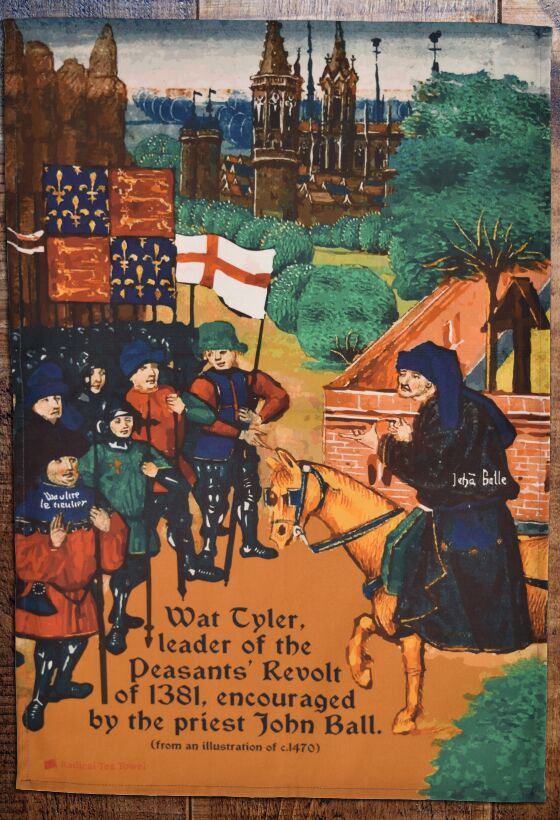
The infamous peasants revolt led by the early egalitarian radical John Ball
Speech 2. Let Us Make Reparation to Africa – William Wilberforce
William Wilberforce was an 18th Century British politician famed for his battles against the slave-trade. On the 12th o f May 1789, Wilberforce addressed the House of Commons. With fearful precision, he urged them to vote for the slave-trade’s abolition in the British Empire, citing the inhuman practise as an ‘effusion of human blood’.
Two years before Wilberforce made this speech, 132 African slaves were thrown into the sea from a slave ship, hence the reference to human blood. He criticised the use of violence and tyranny amongst seamen and merchants towards slaves and cited his belief in the commandment ‘Thou shalt do no murder’ as the source of his abolitionist beliefs.
Wilberforce also argued that such a cruel trade could not possibly be regulated or conducted in a humane way – “total abolition is the only possible cure,” he argued. This speech made any plea of ignorance on the part of his fellow MPs untenable: the callousness of the slave trade was revealed for all to see.
The campaign of Wilberforce and others to bring an end to slavery was hard fought. This speech was a significant moment in bringing about the British West Indies in 1807 and the Slavery Abolition Act in 1833, which abolished slavery throughout the British Empire.

Speech 3. Are Women Persons? – Susan B Anthony
Susan Anthony was an American suffragette and a co-founder of the National Woman Suffrage Association, a group that fought for women’s right to vote.
In 1872, she became the first American woman to vote in an election, albeit illegally. She was charged in January of 1873 for voting “without having a lawful right to vote”. Though she wasn’t allowed to speak in her own defence in court, she made this famous speech in the months running up to her trial.
In the speech, she argued that, in voting, she was simply exercising her “citizen’s rights”. Quoting the US Constitution, she pointed out that it was not “the white male citizens” that formed the Union of the States, but “we, the people,” and that as a person she deserved the right to participate in democracy. “Are women persons?” she famously asked. If so, she argued, then they are citizens of the United States. Why, then, should they not have the right to vote?
But it wasn’t only women’s rights that she campaigned for: she also argued that black people should have the right to vote, since they also are persons, and thus US citizens. This idea of personhood may see very simple, but Anthony’s arguments point out the absurdity of women’s exclusion from democracy. Equality before the law was her radical aspiration.
Despite her cogent arguments, she was found guilty and fined $100. To show her commitment to her cause, she refused to pay her fine, and continued to campaign voraciously for female suffrage; a battle that was eventually won in 1919.

Remember the battles fought by numerous women with this Susan B Anthony design
Speech 4. Love That Dare Not Speak Its Name – Oscar Wilde
This renowned speech, made by Oscar Wilde during his trial for “gross indecency with other male persons,” is perhaps one of the most emotional and poignant speeches ever made. In it, Wilde described his love for Lord Alfred Douglas as “such a great affection of an elder man for a younger man” – thus, the “love that dare not speak its name”.
He described this love as “beautiful", “fine” and “the noblest form of affection”. But, Wilde explained, the world does not understand it. Indeed, they mock his love as unnatural and unlawful. But Wilde’s speech proves just the opposite – that there is in fact ”nothing unnatural about it”.
After the speech, the essayist Max Beerbohm told a friend that Oscar’s speech “was simply wonderful and carried the whole court right away, quite a tremendous burst of applause.” But this applause was not enough: in a second trial, Wilde was sentenced to two years in prison with hard labour, for nothing other than his attraction to a member of the same sex. It was this time in prison that led to his tragic death a few years later.
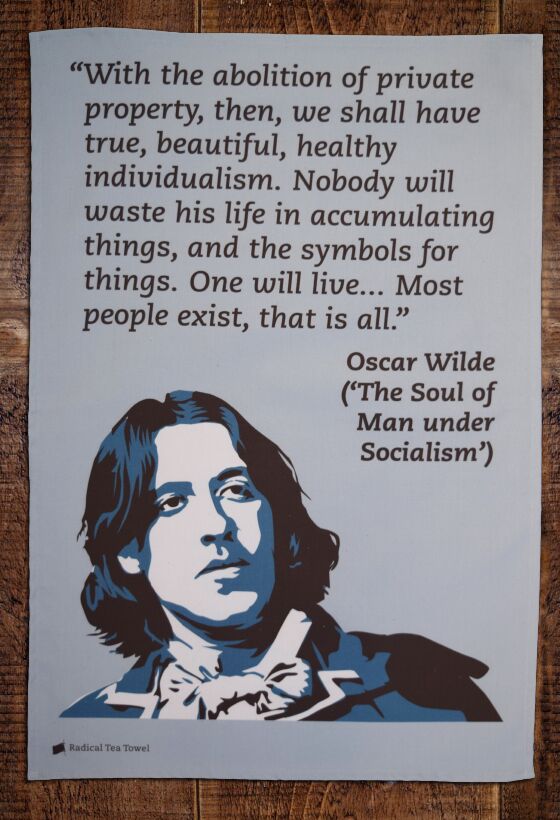
Words of wisdom enshrined forever on this new Oscar Wilde tea towel
Speech 5. I Incite This Meeting to Rebellion – Emmeline Pankhurst
This speech, though not quite as famous as her ‘Freedom or Death’ speech, is similar in its radical feminist message – that of militant protest and action. The speech was made to the Women’s Social and Political Union (which Pankhurst herself set up) in October 1912, and it stirred up the passions of all those who heard it.
Amongst other things, Pankhurst urged her supporters to “Be militant in your own way” and to do whatever they can to express their militancy – protest in the House of Commons, smash windows, and “attack the sacred idol of property”. She explains that, because the militancy of the Chartists had helped to bring about change, the Suffragettes must also adopt radical tactics of civil disobedience.
Her last words, though, are perhaps her most powerful. To rapturous applause and cheers in the auditorium, Pankhurst finished by exclaiming, “I incite this meeting to rebellion” and addressing the government: “Take me if you dare!” But this isn’t just foolhardy rhetoric – many suffragettes spent time in prison for their actions, and a large number of them went on hunger strike whilst behind bars.
So, whatever the government does to her, Pankhurst declares “you will not keep me in prison,” making her speech more than just a radical call to arms, but an open defiance of governmental oppression. This defiance went on for two more years until the outbreak of WW1, when many suffrage movements dedicated themselves towards the war effort. It was at the end of the war, in 1918, that the first women (8.4 million of them) got the vote in the UK.
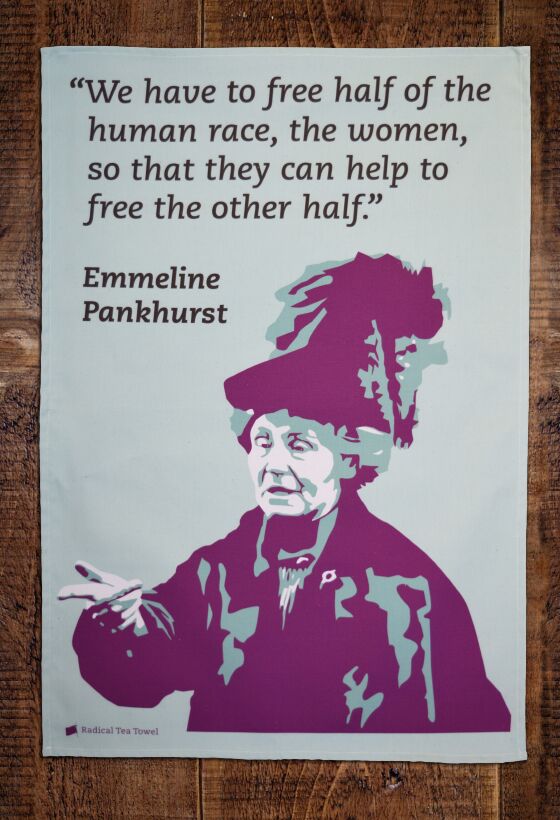
Emeline Pankhurst lead the way to equal suffrage through her foundation of the WSPU
Speech 6. Quit India – Mahatma Gandhi
This speech is perhaps the most famous and most important Gandhi ever made. It played a central role in the Quit India Movement, which helped to gain Indian Independence from the British.
In the speech, Gandhi reinforced his commitment to pacifism and non-violence – “A non-violent soldier of freedom will covet nothing for himself, he fights only for the freedom of his country”. He also declared that, once independence had been won, it would be for the people of India to decide democratically who ruled their country.
He expressed his wish for “equal freedom for all” and for Indian independence, but he encouraged his supporters not to hate the British people – only to hate “British imperialism”. He went on: “We must, therefore, purge ourselves of hatred,” because hatred can never bring about justice. Instead, the Indian Independence movement must be a friend to the British, whilst also fighting for the freedom of their country. Only then would their movement succeed.
The sentiments of this speech are very similar to Gandhi’s “I Wanted to Avoid Violence” speech, which he made during his 1922 trial. Again, he urged the people of India towards non-violence, and explained “violent non-cooperation only multiplies evil”. It is this pacifism that Gandhi is most highly regarded for, and it was his work for India’s independence that won the country its freedom in 1947.

Speech 7. We Are Going to Show The World What the Black Man Can Do – Patrice Lumumba
When the Congo gained its independence in 1960, its new Prime Minister Patrice Lumumba made this passionate and momentous speech to his country’s people. He described the struggle of his countrymen for Independence as one “of tears, fire and blood”. This struggle, Lumumba went on, should make them “profoundly proud because it was a noble and just struggle” that “put an end to the humiliating bondage imposed on us by force”.
His countrymen had suffered. They were insulted simply because of the colour of their skin. They were, as he said, treated as second class citizens, living in “tumbledown straw huts” whilst the white Europeans lived in “magnificent houses” in the Congo’s cities.
But all of this had passed: the Congo regained its freedom, and in that freedom, Lumumba was determined that they would “show the world what the black man can do”. Their country would be “the centre of radiance of the whole of Africa”. They would establish new just laws, put an end to discrimination, and strive for “a peace of courage and goodwill”.
Lumumba’s plans constituted a truly inspiring and hopeful vision, but sadly, a year after the Congo’s independence, Lumumba was killed by troops loyal to an army chief, and his dreams for the Congo never became reality.
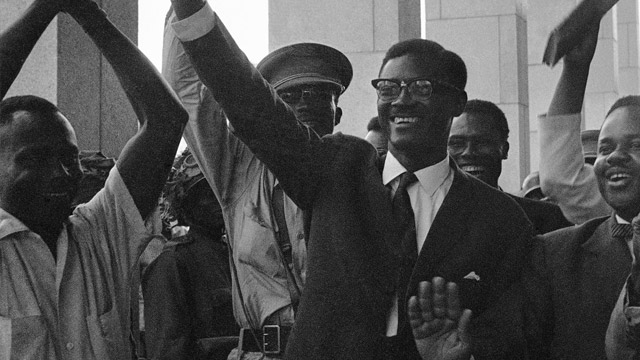
Lumumba's dream may have not materialised, but his words stay with us forever
Speech 8. I Have A Dream – Martin Luther King Junior
All of you radicals will have heard this speech before, but it couldn’t possibly be left out. It is, perhaps, the greatest speech made in the last hundred years, and it is certainly one of the most poignant.
King started by describing “the manacles of segregation and the chains of discrimination” under which African-Americans had suffered for so many years, despite their supposed ‘emancipation’. He referred to the Declaration of Independence as “a bad cheque” as far as black people were concerned, in that their “unalienable rights of life, liberty, and the pursuit of happiness” had never been upheld.
But King saw hope: after this “summer of the Negro’s legitimate discontent” there would be “an invigorating autumn of freedom and equality” – and unless this came about, “The whirlwinds of revolt will continue to shake the foundations of our nation…” But, in urging revolution, like Gandhi, King urged against violence and hate: “Let us not seek to satisfy our thirst for freedom by drinking from the cup of bitterness and hatred.” After all, the freedom of white people “is inextricably bound to our freedom,” he said.
It is then that King describes his dream, a dream that is “deeply rooted in the American dream” that one day we will recognise “that all men are created equal”. He hopes that, one day, “sons of former slaves and sons of former slave-owners will be able to sit down together at the table of brotherhood.” It is a dream that is rooted in love and in compassion for the whole of mankind – a dream of equality and brotherhood.
King ended his speech with the famous exclamation, “Let freedom ring,” and indeed freedom did ring – in 1964, the Civil Rights Act was passed and in 1965, the Voting Rights Act was passed, which finally gave Federal agencies effective power to enforce the rights of black Americans. If it weren’t for King, and if it weren’t for this great speech in Washington, perhaps those Acts would never have become a reality.

Perhaps the most powerful orator the world has ever seen - MLK as seen on this brand new design
Speech 9. An Ideal For Which I Am Prepared to Die – Nelson Mandela
At the end of his trial in 1964, Nelson Mandela took to the podium to explain the ANC’s reasons for abandoning Gandhian principles of non-violence and instead adopting militant methods of sabotage against property (which Pankhurst had also encouraged).
Mandela explained that his decision to support militant aggression was not made through recklessness or from “any love for violence.” Instead, it was the “result of a calm and sober assessment of the political situation that had arisen after many years of tyranny, exploitation, and oppression of my people by the whites.” Non-violent action had not worked and had often ended in the deaths of hundreds of protesters. Thus, he argued that “the government which uses force to support its rule teaches the oppressed to use force to oppose it,” justifying his decisions to engage in sabotage and hostility.
The most powerful part of the speech, though, came at the end. Closing his speech, Mandela spoke about his lifelong commitment to the African struggle: “I have cherished the ideal of a democratic and free society in which all persons will live together in harmony and with equal opportunities. It is an ideal for which I hope to live for and to see realised. But, My Lord, if it needs be, it is an ideal for which I am prepared to die.”
Apparently, as he delivered this final line, Mandela stared the judge directly in the eye. Happily, unlike Martin Luther King, Mandela wasn’t killed for his beliefs, and indeed he became President of South Africa in 1994. He died in 2013 from a respiratory infection, though his legacy lives on – Obama quoted this speech in a tribute to Mandela in Johannesburg.
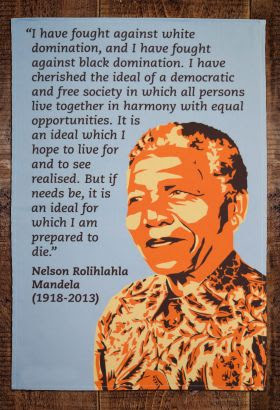
Are there many more inspiring and wise - click to view this brand new Mandela redesign
Speech 10. Che Died Defending the Cause of the Poor – Fidel Castro
Che Guevara, the Cuban revolutionary, was captured and executed on the orders of the Bolivian President in 1967. A few days later, Fidel Castro made this great speech in honour of his close friend and comrade.
Castro described Che as “an incomparable soldier” and “an incomparable leader” who was both capable and courageous. He was “a person of visionary intelligence and broad culture,” too – both a man of ideas and a man of action. His death is, of course, a loss, but as Castro explained, “The artist may die… but what will surely never die is the art to which he has dedicated his life…” Perhaps these words inspired that famous line in the film V for Vendetta – “Beneath this mask there is an idea, Mr Creedy. And ideas are bulletproof.”
Castro went on to say that, “causes are not defeated when people fall,” and just because Che died does not mean his struggles were in vain. After all, Che was not just a great general, he was also a great thinker, and by killing him they have not “eliminated his ideas, eliminated his virtues, eliminated his example.” Rather, Che will live on as a martyr and a symbol of dedication to the revolution.
Castro’s words about the legacy of his friend proved to be almost prophetic. Che has indeed become a socialist icon for movements worldwide, and I’m sure there are very few people who have never come across a Che Guevara t-shirt or poster at some point in their lives. It seems, then, that ideas really are bulletproof – especially radical ones!
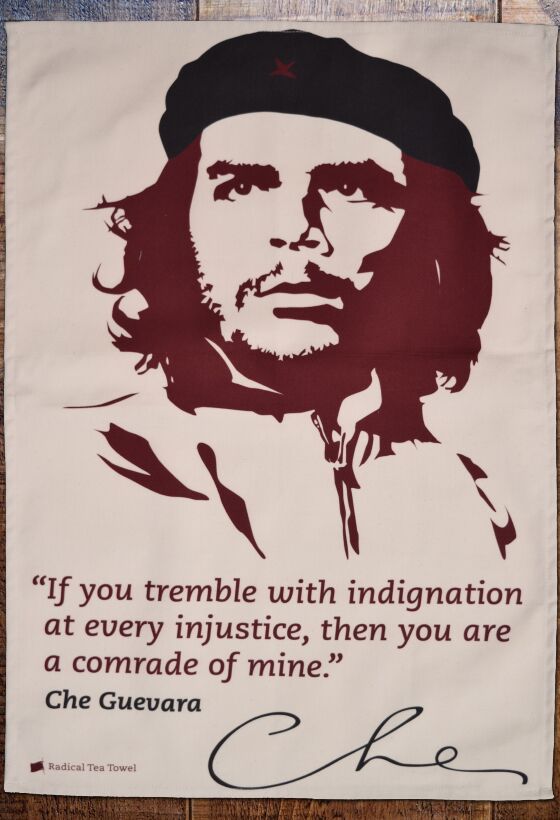
An iconic image for the global left - click to view our Che Guevara tea towel
